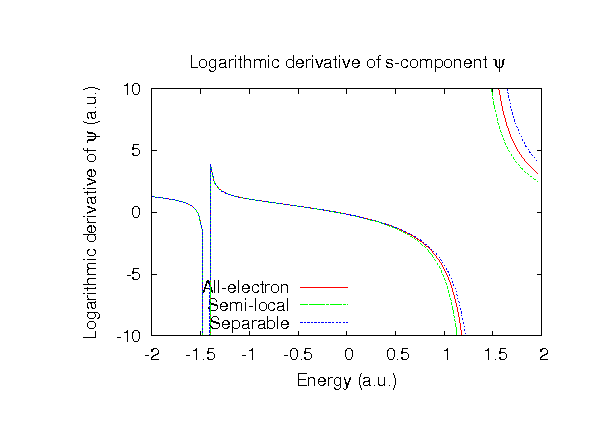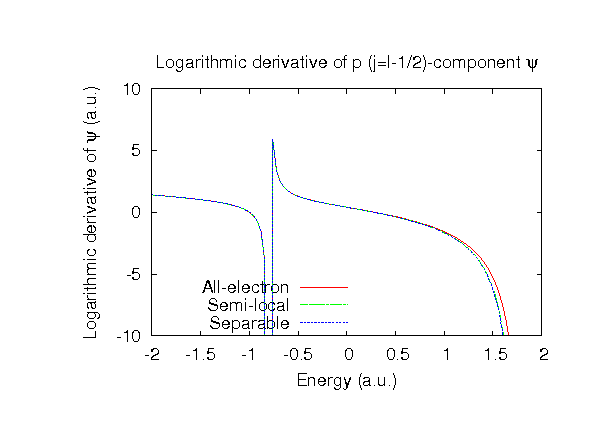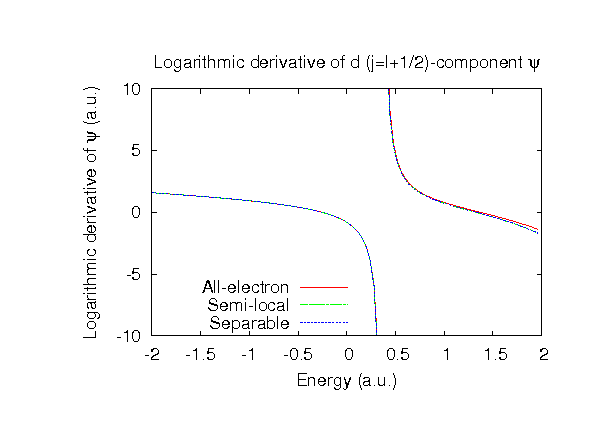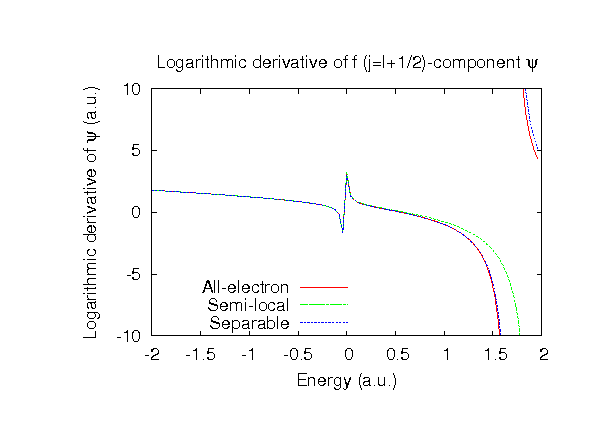
Fully relativistic pseudopotentials
Fully relativistic pseudopotentials generated by
the MBK (PRB 47, 6728 (1993)) scheme within LDA (CA13) and GGA (PBE13) which contain
a partial core correction and fully relativistic effects including spin-orbit coupling.
Pseudo-atomic orbitals
The number below the symbol means a cutoff radius (a.u.) of the confinement
potential. These file includes fifteen radial parts for each angular
momentum quantum number l (=0,1,2,3,4).
The basis functions were generated by ADPACK, and never optimized by OpenMX.
Since Nd_CA13.vps and Nd_PBE13.vps include the 4f, 5s, 5p, and 6s states (14 electrons)
as the valence states, the minimal basis set is Nd*.*-s2p1f1.
Our recommendation for the choice of cutoff radius of basis functions is that
Nd8.0.pao is enough for bulks, but Nd10.0.pao or Nd12.0.pao is preferable
for molecular systems.
Benchmark calculations by the PBE13 pseudopotential
(1) Calculations of the band dispersion in the fcc structure,
where the non-spin polarized collinear calculation with the lattice constant of 5.210 Ang.
was performed using Nd_PBE13.vps and Nd8.0-s3p3d3f2, and the origin of the energy
is taken to be the Fermi level.
The calculation was done at 1000 K to get self-consistency, and then the band structure
was calculated at 100 K using the restart file generated by the former calculation.
The input file used for the OpenMX calculations can be found at
Ndfcc-Band.dat.
For comparison the result by the Wien2k code is also shown, where
the calculation was performed by default setting in the Ver. 9.1 of Wien2k
except for the use of RMT x KMAX of 12.










